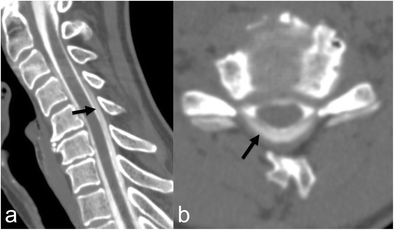

In a subgroup analysis of studies including nonspontaneous CSF leaks as their control cohort, the odds of having OSA with a spontaneous CSF leak were 2.85 times more likely than OSA with a nonspontaneous CSF leak (95% CI, 1.22-6.63 P = .02 I 2 = 0%).

The odds of having OSA with a spontaneous CSF leak were 4.73 times more likely than in control cohorts (95% CI, 1.56-14.31 P = .006 I 2 = 35%). Three of the studies were eligible for the meta-analysis. The cumulative reported prevalence of having OSA and spontaneous CSF leaks is 16.9% (232 of 1376 patients). They were all retrospective in nature and included 3 comparative (case-control) studies, 2 case series, and 1 case report. Results The search criteria yielded 384 abstracts, and 6 clinical studies involving OSA and CSF leaks met the inclusion and exclusion criteria. This hypothesis was formulated prior to data collection. Main Outcome and Measure To determine whether there was increased incidence of OSA in patients with spontaneous CSF leaks. Studies that compared the prevalence of OSA with spontaneous CSF leaks against their control cohort were pooled in the meta-analysis using a random-effects model. The numbers of patients with OSA were systematically extracted from each study. Included studies provided the number of patients diagnosed as having OSA and spontaneous CSF leaks.ĭata Extraction and Synthesis Two independent investigators reviewed all studies for inclusion. The CSF leaks were considered spontaneous when they occurred in the absence of trauma, surgery, infection, and neoplasm. Study Selection Systematic review and meta-analysis of studies from 2005 to 2015 investigating spontaneous CSF leaks in patients with OSA. Objective To determine the clinical association and odds of having obstructive sleep apnea (OSA) and spontaneous CSF leaks.ĭata Sources A comprehensive search of the literature was conducted using PubMed (MEDLINE), Cochrane Library, and relevant article bibliographies. Understanding associations are key to diagnosis, treatment, and possible early detection. Importance Spontaneous cerebrospinal fluid (CSF) leaks are a morbid condition associated with operative intervention for treatment. Shared Decision Making and Communication.Scientific Discovery and the Future of Medicine.Health Care Economics, Insurance, Payment.

Clinical Implications of Basic Neuroscience.Challenges in Clinical Electrocardiography.


 0 kommentar(er)
0 kommentar(er)
